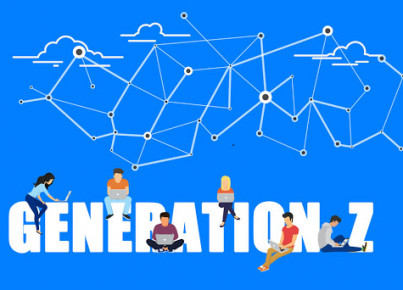Digital transformation has affected the daily lives of the inhabitants of the Southeast Asian region. There users, content creators, investors, businesses and celebrities find themselves incredibly close, sharing the same virtual spaces. Fundamental is the role of Generation Z in exploring and spreading new ways of interaction that combine business, entertainment and the promotion of inclusive values..
The metaverse is undoubtedly one of the hottest topics of the moment. The idea of a parallel digital world almost indistinguishable from reality and inhabited by avatar had already been glimpsed by Neal Stephenson in the then futuristic science fiction novel Snow Crash, published in 1992. The recent announcement by Mark Zuckerberg of the rebranding of Facebook was enough to highlight that more than a business strategy, the desire to bet on virtual and augmented reality reflects a trend that has started and is already growing. According to estimates by Bloomberg Intelligence, it is a market that is set to reach a value of 800 billion dollars by 2024.
Seeing this potential, several companies in the ASEAN area are committed to adapting to the metaverse, offering a virtual alternative of typically physical services and experiences. The project "Metaverse Thailand" promoted by A-Plus is one of many examples: the fintech company in Singapore has launched a platform operating on the young blockchain Binance Smart Chain (BSC) where you can choose land from a real map of the Ekamai area of Bangkok, purchase it and use it to develop virtual properties.
But ASEAN offers a particularly fertile ground for the development of immersive technologies not only because of the huge investments, but also thanks to the high rate of Internet penetration and the generally positive propensity of Z Generation towards digitization and progressive virtualization of their real lives. A study conducted by Milieu Insight among 6000 participants from six countries (Singapore, Malaysia, Thailand, Indonesia, Philippines and Vietnam) shows that a largely positive perception of the trend prevails in the Southeast Asian region: interest and enthusiasm are among the emotions most associated with the metaverse. Among the reasons, most respondents stressed that it represents an "advancement in human social interaction" and that it "facilitates more efficient social opportunities".
Some of the phenomena that are emerging recently in the rest of the world are already established practices in the region of South-East Asia. Here digital natives interact daily with their virtual idols, monetize time spent playing online and socialize in virtual worlds through increasingly customizable 3D avatars. The South Korean Zepeto, the most popular platform of the moment in Asia, attracts 2 million active users a day interested in buying (virtual) high fashion clothing to beautify the digital version of themselves and to make friends online.
According to fans, the platform allows to meet people from all over the world and realize desires that could not easily be satisfied in the real world, such as buying luxury goods and taking selfies with your favorite K-pop star. "There are clothes that I cannot afford to wear in real life but in the digital world, I can buy all of them", explained Monica Louise, a 28-year-old Filipino user known as Monica Quin and famous for the videos and creative contents she makes with her Zepeto avatars. Thanks to her activities on the platform, Monica has actually become a virtual influencer with a six-figure salary.
But the metaverse is more of an alternative market in which to try to chase stratospheric gains or a window in which to show off virtually fashionable clothes and extravagant purchases. The Generation Z, which represents the largest group of Internet users in Asia, takes advantage of its long online presence and its familiarity with digital technologies to transform the virtual universe into a space of assertion of real instances.
Emblematic in this sense is the example of Bangkok Naughty Boo, the first cyber influencer of this type, who self-declares himself eternal seventeen years old, not binary and with the dream of becoming a pop star. His figure "also encloses important social messages such as the desire to build a future without gender distinctions, and offers a more modern and progressive image of the Thai capital," noted Roberta Maddalena for Forbes. As explained by marketing expert Nick Baklanov at the AFP agency in Bangkok, the number of virtual influencers has more than tripled, reaching 130 in just two years, showing how Asia is going to be confirmed as the privileged place for the development of the virtual idol sector and, more generally, of metaverse technologies.






